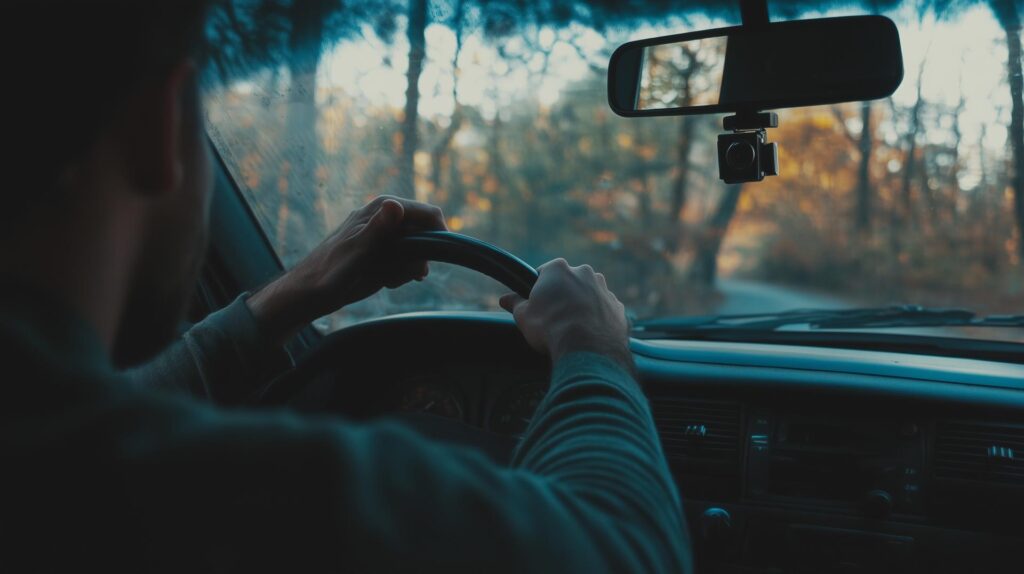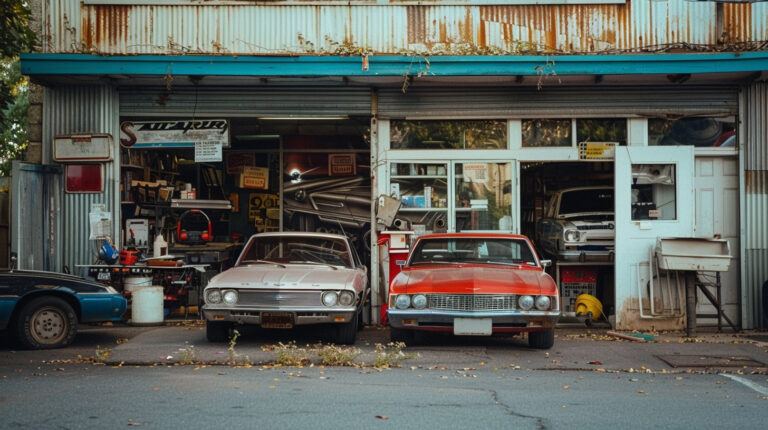Dashcams are commonly used in many countries to protect against unauthorised claims. In Germany, their use is controversial and causes data protection concerns for many. Since the judgement of the Federal Court of Justice (BGH) of 15 May 2018 (VI ZR 233/17) dashcam recordings are generally admissible as evidence in civil proceedings. You can find out here what you need to bear in mind in order to use a dashcam as evidence after an accident.
What is a dashcam?
A dashcam is a small camera that is mounted on the dashboard or behind the windscreen of the vehicle and films what is happening in the traffic in front (and sometimes behind). Dashcams are now common in many countries to protect against unauthorised claims or even fictitious accidents. This is because the recordings prove how the accident really happened and serve as a basis for courts and experts to clarify the question of guilt.
Dashcams have not yet become widespread in Germany. This is primarily due to the legal situation, which is strongly in favour of data protection and the protection of personal data. However, in recent years there have been a number of court judgements and changes to the legal situation, meaning that dashcams can also be used as evidence in certain cases in Germany. The judgement by the Federal Court of Justice in 2018 attracted particular attention, as the court confirmed that the recordings help to clarify the course of the accident and can make it easier for experts, insurance companies and lawyers to assess an accident. Especially for Dashcam recordings are worth their weight in gold in claims for damages. Their use as evidence may not be prohibited as a matter of principle.
Have you had an accident and your dashcam filmed it? We can help you get your rights and advise you comprehensively on whether and how you can use the dashcam recordings to preserve evidence. Simply get in touch with us.
Accident victims in your situation simply get the best support from fairforce.one.
Depending on the cause of the accident, customers receive an average of €4802 Additional payment
Callback within 5 minutes.
Is a dashcam allowed in Germany?
There is no clear answer to the question of whether a dashcam is permitted in a car. This is because the BGH has not commented on this. The judges merely ruled that dashcam recordings are no longer generally inadmissible as evidence. However, the court left open whether and how such recordings can be made one hundred per cent legally.
Is a dashcam allowed or not? In principle, it is permitted, so you can safely install such a camera in your vehicle. However, filming itself, provided it takes place in a public space, is still only possible within a narrow framework. This includes the fact that the camera may not run and record continuously. This would violate the General Data Protection Regulation (Art. 6 GDPR, Section 4 BDSG). But how are dashcams permitted? Small features that many cameras have and that make it easier to comply with the strict laws can help.
Dashcam Germany - What I am allowed to record
A dashcam in the car may not record permanently and may not store these recordings permanently. However, it is impossible to switch on the camera immediately before an accident or incident. For this reason, the small devices usually come with corresponding functions that make their legal use in road traffic possible without having to act as a clairvoyant. This includes these functions, for example:
- Acceleration sensor/G-sensor: This ensures that the camera detects accidents and heavy braking manoeuvres, switches on automatically and records.
This means that the dashcam only films when there is a reason to do so. - Automatic overwrite/loop: Modern cameras do not save possible accidents and dangerous events as a continuous film, but in the form of short clips. Older recordings are regularly overwritten and deleted thanks to a loop function. There is therefore no permanent storage.
- GPS, date and time: When the camera starts filming, it not only saves what the lens captures, but also automatically saves the location, date and time. This makes it easier to use the recordings later as evidence and provides all the relevant information.
These functions allow dashcams to be used legally in public spaces, including road traffic, and comply with legal requirements. Interested parties should therefore make sure when buying that the desired camera model fulfils these requirements and only records when there is a reason to do so and does not store the recordings permanently. After an accident, the saved clips can usually be easily retrieved and, if desired, saved permanently. This is usually legally acceptable, as there is a reason in the form of the accident and otherwise no permanent recording and storage takes place.
Publishing dashcam videos on the internet, e.g. on YouTube, can violate the right to informational self-determination and the right to one's own image. Therefore, make sure to make all personal data unrecognisable. This also includes faces, licence plate numbers and other relevant information that allows conclusions to be drawn about individuals.
Using the dashcam as evidence
The use of dashcam videos is not always admissible as evidence. Not even if the driver has complied with the legal requirements. Although the BGH judgement has made it easier to use the recordings as evidence, it is up to the courts to decide whether they are actually admissible. To this end, each individual case is examined (using Weighing up legal interests) and decided whether the dashcam may be utilised or not. This is because the interests of the party providing the evidence and the personal rights of the other party are usually in conflict here:
Interests of the party providing the evidence:
- Enforcement of his civil law claims
- The right to be heard enshrined in the Basic Law pursuant to Art. 103 (1) GG in conjunction with the interest in a functioning civil justice system
- Interest in a materially correct decision after free evaluation of evidence
General personal rights of the opposing party:
- Right to informational self-determination
- Right to one's own image
The interests of both sides are weighed up separately for each individual case. The judges decide which interests weigh more heavily and which of these must take second place. Depending on the situation, this can speak in favour of or against dashcam footage as evidence.
In the above-mentioned ruling by the Federal Court of Justice, the balance of legal interests was in favour of the dashcam user, whor in the civil proceedings demanded that the court of appeal admit his recordings as evidence. acc. § 371 Para. 1 ZPO to take a closer look.
Accident victims like you get the best support from fairforce.one.
Have your accident reported now free of charge and without obligation by our regulation specialists.
fairforce.one is there for you
Have you had a road accident and don't know whether your dashcam footage is admissible as evidence and what you need to do now? We can help you further.
That's what we do for you: Our network of experts will take care of the entire claims settlement process for you - from checking the claims to enforcing the claims for compensation. With our fairforce.one portal, we guarantee you uncomplicated and professional claims settlement. You save a lot of time, because the specialists in the fairforce.one network communicate with all parties involved in the process, from the insurance company to the expert to the lawyer.
And that's the highlight: the HIS (customer information system) gives you a complete overview of your case. Here you can call up the status of your case or view important documents such as invoices and expert reports.
These are the steps for your best possible claims settlement:
You report your accident to us and this is how it works: Simply online or via the free hotline 0800 30 111 60. Now you have already taken care of everything for your claims settlement. Our experts will contact you within a few minutes and discuss the next steps with you.
FAQ on dashcam recordings in the car
How long can a dashcam record for?
A dashcam may neither permanently record nor permanently save these recordings. This is why modern cameras often have sensors that recognise critical situations and only then save the recording. In addition, recordings that are not required are regularly overwritten or deleted. Dashcams can be used legally with these functions.
learn moreAre dashcams allowed in Germany?
In principle, yes, but there are strict rules governing their use and when and how they may be recorded. It is advisable to adhere to these rules in order to be able to use them as evidence in a legal dispute.
learn moreCan I use a dashcam recording as evidence?
Whether and which dashcam recordings are admitted in a legal dispute is decided by the courts - on a case-by-case basis. This means that such recordings could also be rejected as evidence even though they were made lawfully.
learn moreWhat should I look out for in a dashcam?
Make sure that the dashcam fulfils the legal requirements. Neither unprovoked nor permanent recordings may be made in road traffic. Modern cameras therefore have acceleration sensors, loop functions and similar features in order to comply with legal requirements.
learn more




